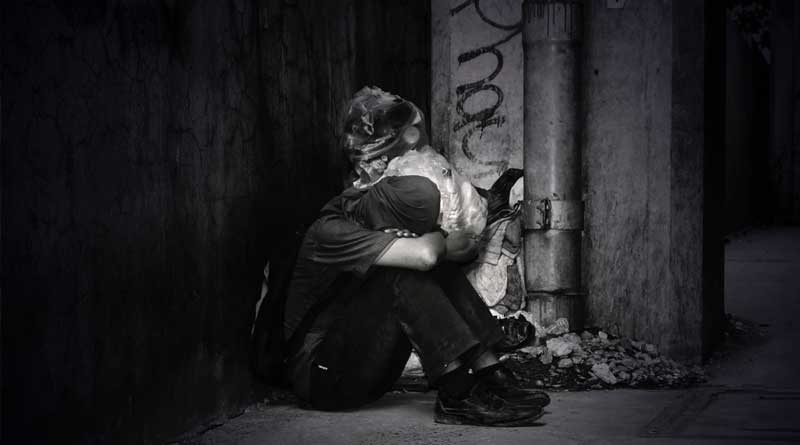CHATTANOOGA, Tenn. – 2020 has been an exceptional year at contributing to the homeless population due to the large number of lockdowns and layoffs because of COVID-19.
However, there was already an upward trend in the number of homeless before the Pandemic.
In 2016, Chattanooga reported that there were 91 chronically homeless people in the city out of 527 total homeless. The Unemployment rate for the year ranged from 4.3% to 5.1%.
By 2018, the number of chronically homeless had grown to 322 out of a total of 623. The Unemployment rate for 2018 ranged from 3.1% to 4.0%.
Although the final numbers for 2020 are not in yet, Chattanooga Community Kitchen reports that an estimated 600-700 individuals sleep outside or in shelters every night, with nearly 200 of them in families.
CEO of the Community Kitchen Jens Christensen says they serve around 750 different people each day.
The record high for unemployment was in April 2020 at 13.2% trumping the previous record of 9.9% in the first available reported month, January of 2010.
Unemployment in the Chattanooga Metropolitan Area is down to 5.1% for September 2020, this is the lowest it has been since March 2020.
The U.S. Bureau of Labor Statistics has not yet reported the October 2020 numbers, but the rate has been in steady decline since its peak in April.
Unemployment certainly contributes to the number of homeless, but that is only part of the story.
According to HUD’s 2018 annual homelessness count, 20 percent had a severe mental illness and 16 percent suffered from chronic substance abuse. Among all adults who used shelter at some point in 2017, 44 percent had a disability. The department also found that nine percent of U.S. homeless had spent time in a jail or correctional facility.
However, HUD may have undercounted this population, as other surveys found up to four-in-10 homeless are alcoholics and an equal number have mental health issues.
The report states that individuals with “weak social ties are more likely to become homeless.” It cites a study that found “the lifetime incidence of homelessness is reduced by 60 percent for individuals with strong ties to family, religious communities, and friends.”
Government policies to reduce homelessness may actually make the situation worse.
“Boston, New York City, and Washington, D.C. are each subject to right-to-shelter laws that guarantee shelter availability of a given quality. These places each have rates of sheltered homelessness at least 2.7 times as high as the rate in every other city, and this difference cannot be explained by their weather, home prices, and poverty rates.”
“Boston, New York City, and Washington, D.C. also have substantially higher rates of overall homelessness than almost every other city, suggesting that most people being sheltered would not otherwise sleep on the street.”
The report also states that the cost of median rent and homelessness rise in lockstep, finding a virtually one-to-one ratio.
“A central driver of higher home prices in some communities is the heavy regulation of housing markets by localities,” the report says.
This includes “overly restrictive zoning and growth management controls; rent controls; cumbersome building and rehabilitation codes; excessive energy and water efficiency mandates; unreasonable maximum-density allowances; historic preservation requirements; overly burdensome wetland or environmental regulations; outdated manufactured-housing regulations and restrictions; undue parking requirements; cumbersome and time-consuming permitting and review procedures; tax policies that discourage investment or reinvestment; overly complex labor requirements; and inordinate impact or developer fees.”
The Acton Institute reports that a permissive policy of turning a blind eye to non-violent street crime may also increase the number of homeless and/or prolong their stay on the streets.
The report also states that America’s secularized, atomized culture is partially to blame.
“Church membership significantly decreases the likelihood of homelessness. Christians seeking to reduce homelessness should support a greater role for churches and private philanthropies, and less government interference in the housing market.”
Chattanooga has many resources available to help the homeless but, according to Community Kitchen CEO Jens Christensen, many don’t want to be counted as homeless because of shame.
“It’s really affordable housing that’s at the root of prevention and getting people off the street and it’s also shelter once they’re on the street because you have to have a stable place to start over” Christensen said.
Others have stated that many choose to be homeless because they have found it to be profitable.
Robert from Missionary Ridge stated, “I once asked a panhandler if he would like to have a job with my business. The panhandler replied, ‘I can make three or four hundred dollars on a good day, this is my job.”
Sara from Shawnee Hills stated, “As much as people have a compassionate heart in this town, the police as well as organizations that help the homeless say over and over again to please do not give them cash or handouts. It only enables them to keep doing what they’re doing and they never really get the help they need. “
“There are over 200 agencies in Chattanooga that can help someone. Dialing 211 puts people in contact with the agency that can help specific issues,” Sara said.



